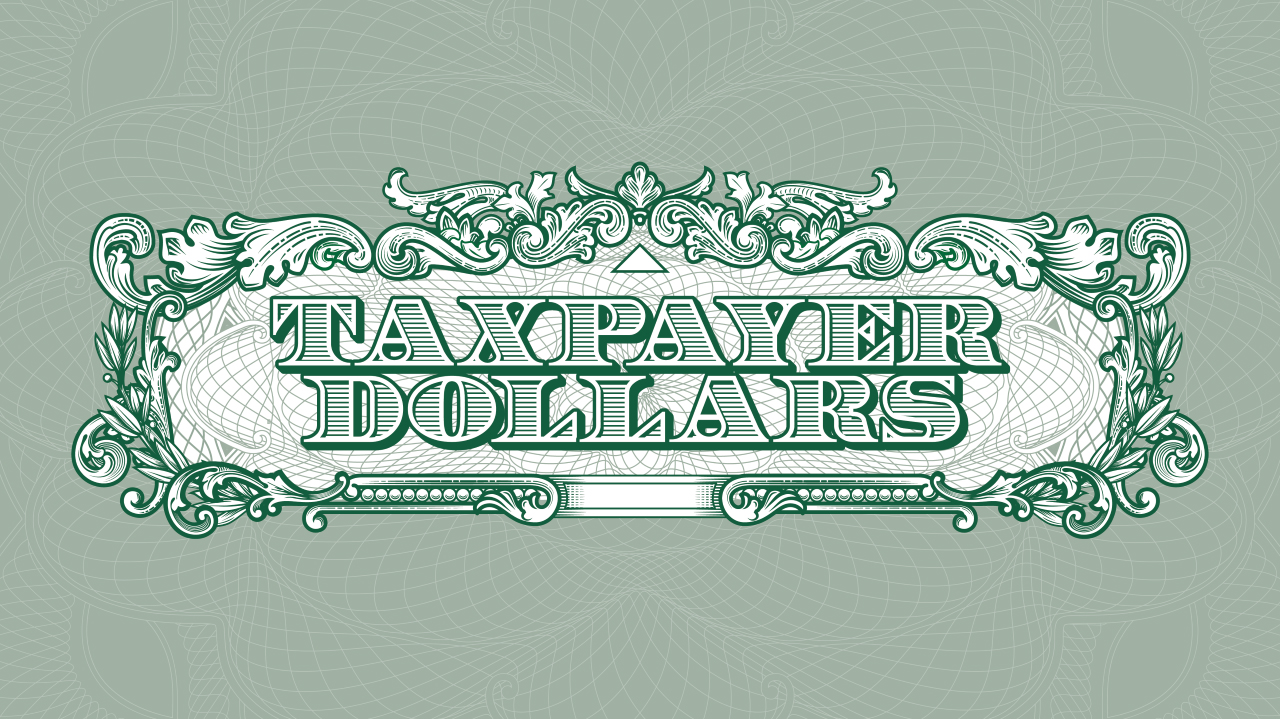In late February, a caucus of Republican legislators wrote a three-page memo to rally opposition to President Joe Biden’s $1.9 trillion stimulus package. Highlighting “liberal goodies” in the bill, Rep. Jim Banks (R-Ind.) explained that his group had put together a fact sheet “to educate Americans [on] exactly how their taxpayer dollars are being spent by Democrats.” There it was again, invoked as usual to block government aid: the myth of the “taxpayer” and their “dollars.”
The phrase “taxpayer dollars” has a populist, even democratic ring to it. Gone are the days when we referred to the treasury as “the king’s purse” or treated taxation as a tithe or gift to the crown. “Taxpayer dollars” suggests that the money spent by the federal government is owned by “the people.” But the concept is more slippery than it might seem. The question of who counts as a taxpayer is not some neutral, empirical consideration.
Did the unmarried or widowed women who paid state property taxes qualify politically as “taxpayers” in the 19th and early 20th centuries, even though they couldn’t yet vote? Does a 12-year-old who buys a soda at the corner market with his allowance qualify? What about the tenant farmer? What about the undocumented worker paying into Social Security that they will never receive? Is a renter less of a taxpayer than a homeowner simply because they are paying embedded taxes?
Not everyone who pays taxes gets to be considered a taxpayer. That’s because it’s frequently a bit of code, a way of talking about white people—and especially white male heads of households, homeowners, and business owners—and the imagined Black underclass that’s coming for their money.
The taxpayer myth has deep roots, and throughout history it has been intertwined with the idea that all forms of resources from the government belong to white people, to do with as they please. In the late 19th century, a series of lawsuits brought by Black students and educators challenged the segregation of schools. These argued that Black people, as “taxpayers,” were having their rights violated—they were paying for schools but not receiving a fair education. There were clear dignitarian and legal reasons for Black litigants to assert their identity as taxpayers. But their approach offered illusory victories in court, and the narrative soon would be weaponized by reactionaries.
White people jumped on the idea that “taxpayers” had a say in how their money was being used to fund education. In 1892, Ida B. Wells noticed the language used by the Memphis Evening Scimitar to justify lynchings, which the newspaper, predictably, blamed on Black people. In its coverage of the Memphis massacre of 1866, the Scimitar sneered that the “scoundrels” who were really at fault had “received educational advantages at the hands of the white taxpayers.”
Sixty years later, in the wake of Brown v. Board of Education, white people across the country argued that their “taxpayer dollars” should not go to Black education. Some even protested that they should not have to submit to desegregated education because—as they argued, wrongly—white people paid “most of the taxes.” This assumption was an ironic wrinkle. In many Black-majority counties in the South in the early 20th century, Black families were actually taxed disproportionately for a segregated school system, thanks to all-white school boards.
In his 1965 speech urging passage of the Voting Rights Act, LBJ memorably declared he wanted to help poor people “be taxpayers instead of tax-eaters.” The nonsensical assumption—no one escapes paying at least some tax—suggests there was another game at work. Johnson described some people as tax-eaters because he was referencing his own War on Poverty programs. Of course, no one would think to call homeowners or World War II veterans “tax-eaters” despite the programs created to support them. LBJ had mapped his taxonomy onto the country’s racial hierarchies. It was based on the kind of federal provision you received. If you got the sort of aid that was perceived to flow to Black Americans—public jobs, public schooling, social welfare—you were not a taxpayer.
An identity had been created, racialized but still outwardly race-neutral, uniting white people across classes in a privileged public category designed to naturalize inequality. The figure of the overburdened white taxpayer would be central to the austerity politics of post-’60s America, from the tax revolts of the 1970s to the tea party to Mitt Romney’s “47 percent” and beyond. Routed through the tax code and smuggled into the language of our common sense, the color line lives on in the form of the taxpayer citizen, preyed upon by the untaxed others.
Camille Walsh is an associate professor at the University of Washington and the author of Racial Taxation: Schools, Segregation, and Taxpayer Citizenship, 1869–1973.













